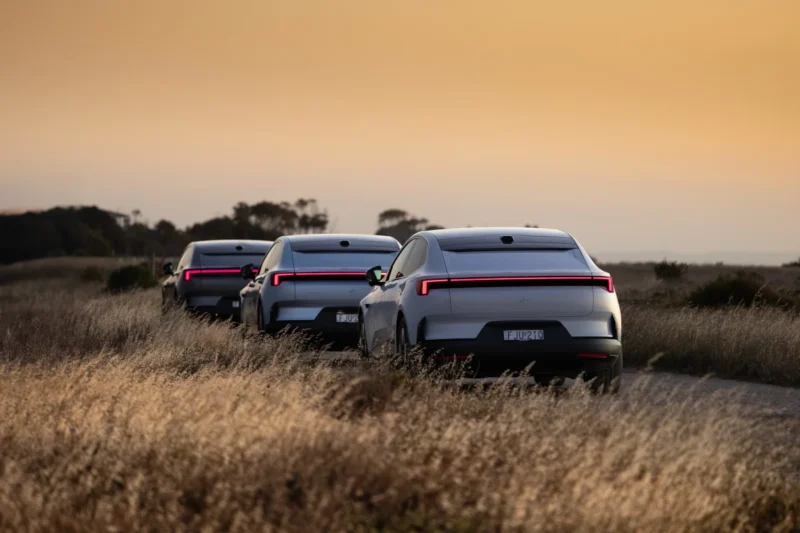American technology stock exchange Nasdaq has warned Swedish electric car manufacturer Polestar that its shares had fallen below the $US1.00 minimum bid price requirement, risking delisting in the second quarter of 2026.
Nasdaq listing rules require companies to maintain a minimum bid price of $1 per share. Polestar received a formal notice last week and it now has 180 days, or until 29 April 2026, to regain compliance by having the closing bid price of its shares reach at least $US1.00 per share for at least ten consecutive business days.
If Polestar does not regain compliance by this date, it may be afforded an additional 180 calendar days.
As of writing, Polestar’s shares are currently being traded on the Nasdaq at $US0.71.
The last time Polestar’s shares traded in compliance with the listing rules was September 18, but with a brief exception at the end of August and beginning of September, Polestar’s shares have been hovering around the $US1 mark for around a year.
It marks a spectacular decline for a company that was once valued at $US27.42 billion following its 2021 backdoor merger with special purpose acquisition company (SPAC) Gores Guggenheim.
Despite a headline-grabbing start, only around 6 per cent of Polestar’s shares were freely traded, with the rest being held with parent company Geely and its Swedish subsidiary Volvo Cars.
Polestar, however, has regularly posted net losses and remains unprofitable. During the first six months of 2025, for example, Polestar posted a net loss of $US703 million, a major blowout from the $US23 million net loss posted in the same period in 2024.
While blaming its lack of profitability on “external headwinds” and offering a number of discounts and leasing incentives in an effort to boost its sales, Polestar is facing pressure from new and old rivals, including American EV giant Tesla and Chinese EV juggernaut BYD.
Polestar offers the Polestar 2, Polestar 3 and Polestar 4 electric vehicles in Australia. It achieved total sales of 154 units in October, for a year to date total of 2,022 – a rise of nearly 40 per cent over the same period in 2024.
Joshua S. Hill is a Melbourne-based journalist who has been writing about climate change, clean technology, and electric vehicles for over 15 years. He has been reporting on electric vehicles and clean technologies for Renew Economy and The Driven since 2012. His preferred mode of transport is his feet.


